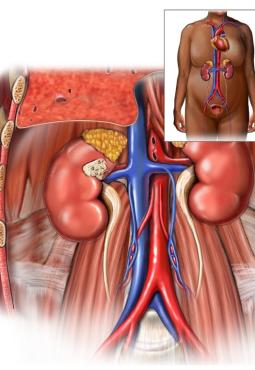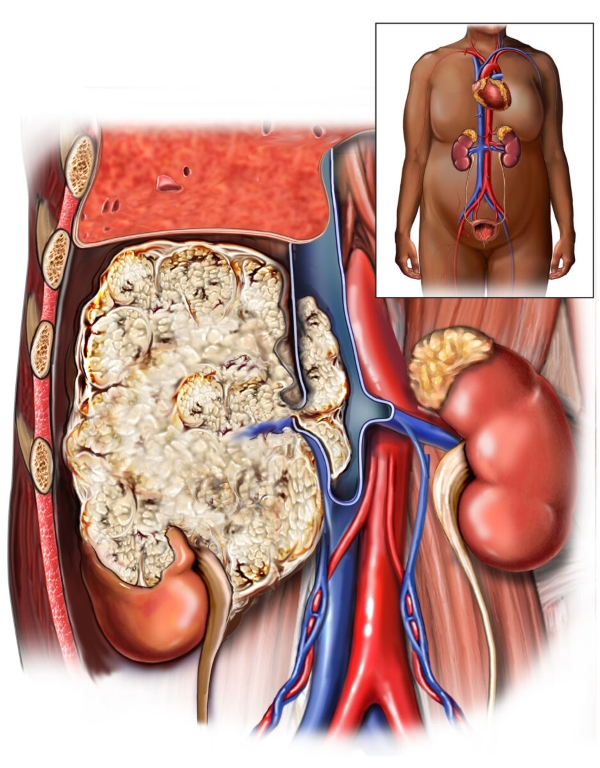Kidney Cancer Facts
What Is Kidney Cancer?

Kidney cancer is a disease involving the abnormal and uncontrolled growth of cells in the kidneys, a pair of organs that removes waste products from the bloodstream and excretes them as urine.
About 90 percent of kidney cancers are renal cell carcinomas, which originate in the tubules that transport waste materials from the blood to the urine.
Rarer kidney cancers include transitional cell carcinoma (originating from the lining of the renal pelvis – where urine goes before it is transported to the ureter and urinary bladder), Wilms tumor (a subtype that primarily occurs in children) and renal sarcoma (from blood vessels and connective tissues within the kidney).
What Increases Your Risk of Kidney Cancer?

Factors that can elevate risk of kidney cancer include:
- A personal or family history of kidney cancer
- Having an advanced kidney disease, particularly those requiring dialysis
- Smoking
- Obesity
- High blood pressure
- Gender: Kidney cancer is more common in men
- Race/ethnicity: African-Americans and American Indians/Alaska Natives have a slightly higher risk of developing kidney cancer
- Workplace chemicals: Exposure to cadmium, organic solvents and some herbicides increases kidney cancer risk.
- Inherited genetic mutations, such as von Hippel-Lindau disease, hereditary renal cell carcinoma and Birt-Hogg-Dube syndrome
What are the Symptoms of Kidney Cancer?
Most common kidney cancer symptoms are linked with urination changes, including:
- Blood in the urine
- A lump in the lower back
- Persistent pain in your lower back on one side
- Fatigue
- Loss of appetite and unexplained weight loss
- Anemia
Although these symptoms can be caused by other conditions, you should check with a doctor – preferably a urologist – so he or she can make a definitive diagnosis.
Sources: National Cancer Institute and American Cancer Society